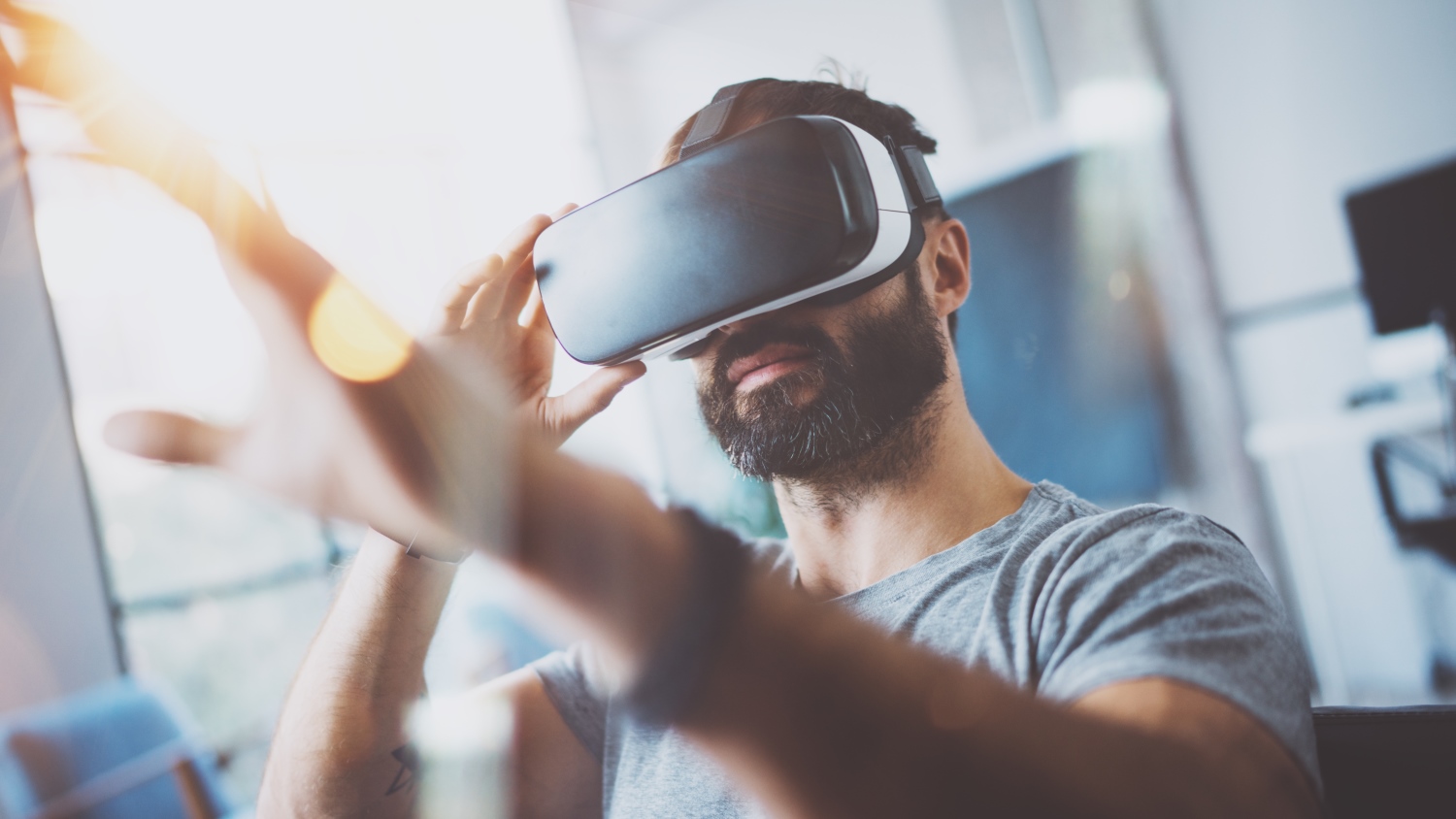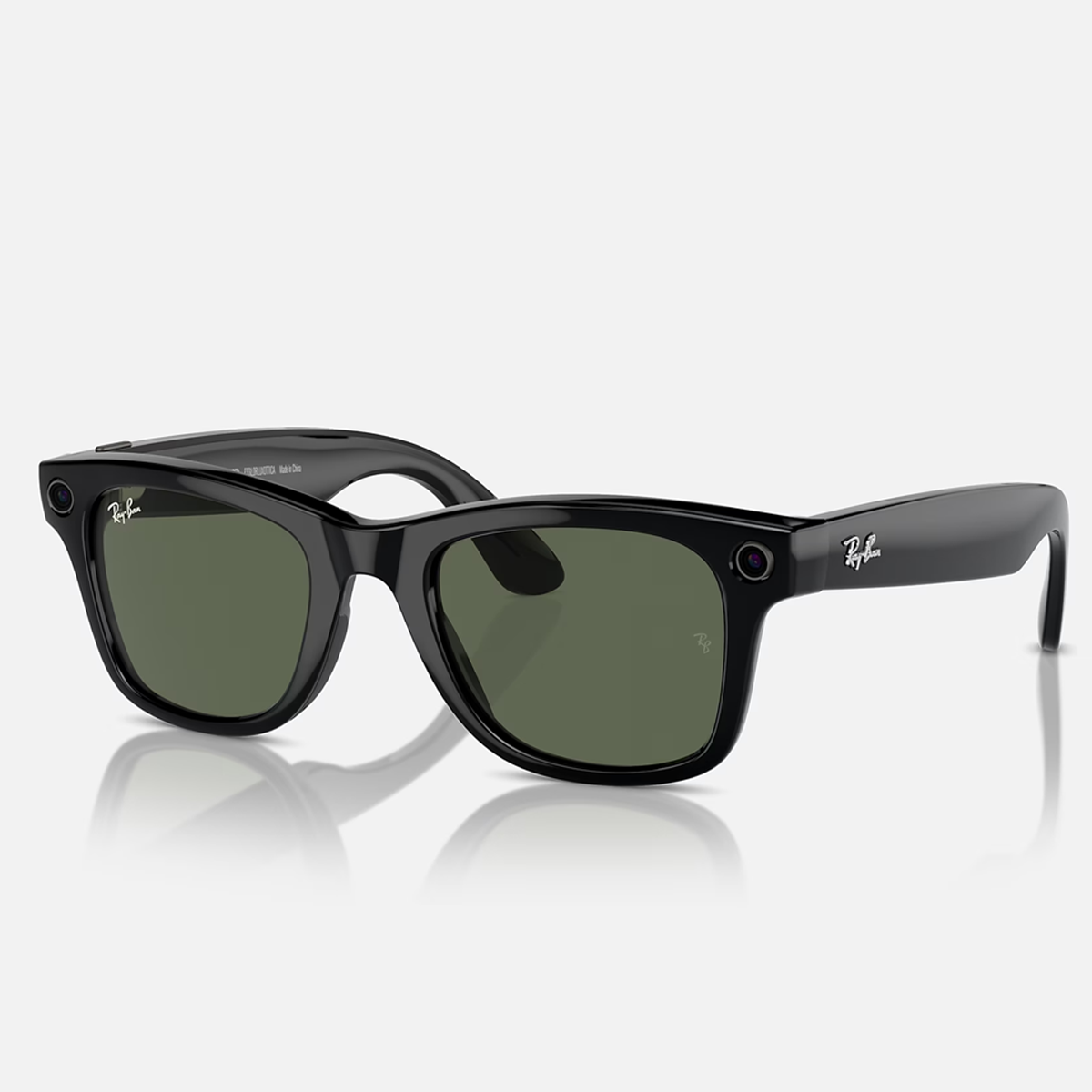Samsung's promised XR platform might first arrive as a pair of smart glasses
Qualcomm's CEO teases a new product and expects smart glasses to just be regular glasses one day

It’s safe to say that Samsung has been building up hype around its future mixed reality (or XR) endeavor. From partnering with Google to teasing it first at a Galaxy Unpacked in 2023 then again at July 2024 at the Paris Galaxy Unpacked event, we’re all hoping to see what it is eventually.
And now, thanks to comments from Qualcomm CEO Cristian Amon, we’re getting a strong hint that Samsung's mixed-reality ambitions will take the form first as a part of smart glasses.
In an interview with CNBC this week, Amon stated that the partnership between the three companies would present itself as “a new product; it’s gonna be new experiences.” He continued by saying he really expects the result to be a change in consumer behavior, “want[ing] everyone that has a phone to go buy companion glasses to go along with it.”
Teeing up that eventually, we’ll get to the point where smart glasses are just seen as regular glasses, something that Qualcomm is certainly pursuing as its silicon powers Meta’s RayBan smart glasses. These look like a classic pair of Wayfarers – albeit a bit thicker – with cameras, microphones, and bone-conduction speakers on board.
The comments from Amon offer the best indication yet for what the promised partnership between Samsung and Google will result in. Unlike previous rumors that have pointed towards a VR or AR headset potentially competing with the Meta Quest 3 or Apple’s Vision Pro, it seems that it’ll more likely than not be a pair of smart glasses.
Considering Samsung has been making Galaxy phones for years and has been continuing to expand its wearable devices beyond smartwatches with smart rings and smarter earbuds, a pair of glasses that act as a companion to a smartphone makes sense.
The turning point

Beyond the confirmation that it’ll result in a new product enabling new experiences, though, Amon was pretty tight-lipped regarding further details.
Get daily insight, inspiration and deals in your inbox
Sign up for breaking news, reviews, opinion, top tech deals, and more.
Regarding the Ray-Ban Meta glasses, though, he’s “incredibly pleased” and called out that generative AI was the “inflection point". It can run on the smart glasses themselves, the connected phone, and the cloud, which he views as a critical way to create new experiences as it’s fully embedded. It means that it can see and hear what you hear, allowing it to be more helpful for different queries.
Of course, these potentially smart glasses won’t be in the market alone. Meta has already teased the future and more feature-filled smart glasses, but Project Astra’s ambitions might eventually put them in glasses and smart Ray-Bans for consumers today.
Even with these comments, we’ll need to wait for Samsung to reveal the exact result of this partnership. Its next official event will be the Samsung Developer Conference on October 4, 2024. Still, it remains to be seen if the company will be ready to discuss it further… I guess we can expect another teasing mention, if nothing else.
You Might Also Like...

Jacob Krol is the US Managing Editor, News for TechRadar. He’s been writing about technology since he was 14 when he started his own tech blog. Since then Jacob has worked for a plethora of publications including CNN Underscored, TheStreet, Parade, Men’s Journal, Mashable, CNET, and CNBC among others.
He specializes in covering companies like Apple, Samsung, and Google and going hands-on with mobile devices, smart home gadgets, TVs, and wearables. In his spare time, you can find Jacob listening to Bruce Springsteen, building a Lego set, or binge-watching the latest from Disney, Marvel, or Star Wars.